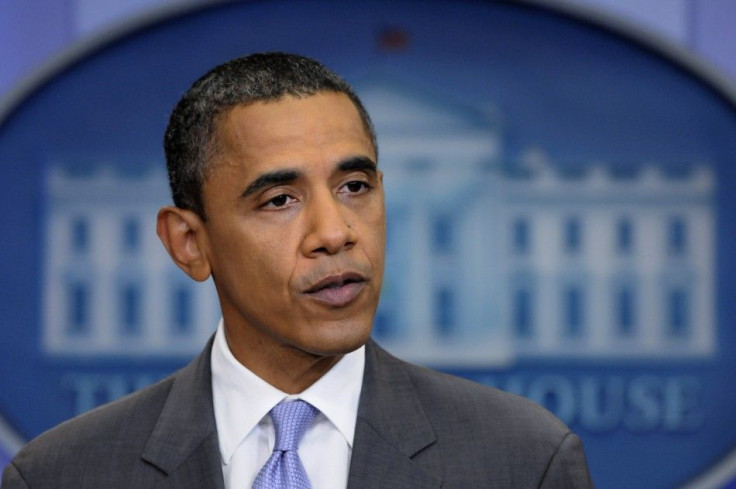Obama: Debt Ceiling Deal Reached

President Barack Obama told reporters Sunday that a deal has been reached to raise the federal debt ceiling and avoid the first U.S. default.
The deal in principle comes even as formal votes must still be taken in the House and Senate to pass the bill and send the final bill to Obama for his signature to make it a law.
Earlier, Senate Majority Leader Harry Reid said he had "signed-off" on a debt-raising deal that could be voted on as early as Sunday night, while the Senate's Republican leadership had previously indicated that a deal had not been reached yet. "Senator Reid has signed off on the debt-ceiling agreement pending caucus approval," a spokesman for the senator said Sunday afternoon.
Reid, of Nevada, who is in high level talks with Republicans Senate Leaders and the White House was conferring with fellow Democrats prior to giving the go-ahead for deal.
He said that he hoped a vote can happen Sunday evening ahead of an Aug. 2 deadline when the U.S. Treasury says the U.S. will begin to default on some of its obligations.
Reid's support for a bill that is expected to cut more than $2 trillion from the federal budget over the next 10 years needed his fellow Democrats' approval.
Top Republican Sen. Mitch McConnell had not "signed of on anything" earlier in the evening, according to a report by ABC News. However, he told CNN's "State of the Union" that a deal was "very close."
Meanwhile in the House, House Speaker John Boehner had scheduled a conference call with lawmakers at 8:30 p.m., according to Politico.
House Minority Leader Rep. Nancy Pelosi, D-CA had scheduled a separate meeting with her caucus, according to the report.
Top level negotiations were continuing on Sunday after an early afternoon attempt by Reid to see if one of his proposals would have enough votes to clear the Senate. It fell short of the 60 "ayes" needed to overcome a Republican Party filibuster. It could only manage a 50-49 vote in favor.
The deal being negotiated by McConnell and Vice President Joe Biden included a rise in the federal debt limit in two stages, for a total of $2.2 trillion. The increase would be large enough not to need another raise beyond the 2012 general election.
On Friday, the Senate blocked a bill passed by the House handily, setting the stage for further negotiations.
Republicans and Democrats have been in discussions for months regarding the debt limit as the deadline has approached.
© Copyright IBTimes 2024. All rights reserved.











